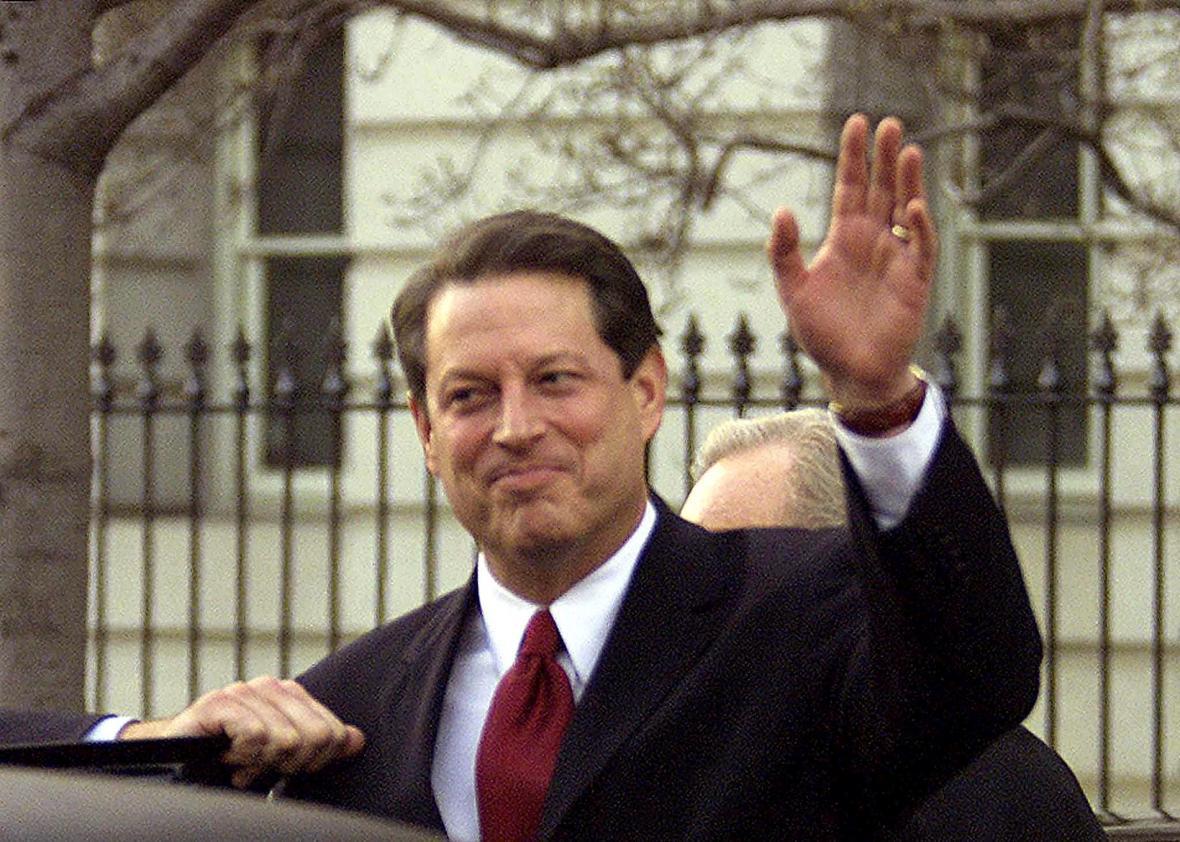There’s a reasonable debate to be had about whether the media is overplaying the moment in Wednesday night’s debate when Donald Trump refused to say that he would accept the outcome of the election—the opposite of the answer he gave at the end of the first debate, when he was faring much better in polling. Maybe “everyday Americans,” to use Hillary Clinton’s favorite term, do not see what the big deal is. That would be a fair talking point from the Trump campaign.
Instead what I’ve mostly been seeing from Trump sympathizers and surrogates since the end of the debate has been an attempt to muddy the waters by raising Al Gore’s legal fight in 2000.
That’s strange, because what Trump said last night and the Gore situation have nothing to do with each other?
The reason Chris Wallace asked Trump if he would accept the results of the election is that, since Trump knows he’s going to lose badly—and needs to come up with a way to save his “winner” image, which he claims to be worth billions of dollars in brand equity—he has been running around saying the election is rigged. It is being rigged in the media right now, he says, and will be rigged on Election Day via rampant voter fraud schemes in West Philadelphia and elsewhere. In other words, he’s riling up his supporters with lies about how the election will be stolen in order to preserve his ability to sell his name to further real estate projects and, more psychologically, maintain the soaring valuation of his self-worth as a human being.
Trump’s spinners are claiming that all Trump’s saying is that he won’t abandon his rights—like Al Gore didn’t abandon his in 2000. As Slate’s Jeremy Stahl reported from the spin room Wednesday night, that’s what Sen. Jeff Sessions worked with:
“If there’s fraud or impropriety in it, I think what he’s saying is that ‘I’m not waiving’ ” the option to contest the results, Sessions continued, comparing Trump’s response to Al Gore’s legal challenge in the state of Florida in 2000. The vote in that decisive state was determined by fewer than 600 out of nearly 6 million cast, the closest presidential election in American history. “One thing that Donald Trump means is, he doesn’t intend to be cheated or taken advantage of,” Sessions continued. “So he will defend his rights.”
Trump campaign manager Kellyanne Conway, too, was right out of the gate with Gore comparisons when she entered the spin room, asking CNN’s Dana Bash if she remembered Gore’s election night concession and subsequent withdrawal of concession.
No one is saying that Trump can’t exercise his rights. That is not the issue. If the election comes down to one state, or two states, and those states are within the margin for requested or automatic recounts, Trump should obviously pursue all of his options. If there is evidence that widespread voter fraud at certain precincts could be responsible for overturning the election, Trump should feel free to clear that up. He should also feel free to criticize the Supreme Court if it abruptly ends a state’s ongoing legal process. But once it’s over, the right thing to do is concede, tell your supporters that you accept the results, congratulate the president-elect, and urge everyone to move on.
The way things are going, Trump is not going to get anywhere near close to winning this election. When he’s lost 300 to 400 electoral votes fair and square, is he going to admit defeat, or whine about how the whole thing was a scam and slash another gaping hole in public institutional trust where there needn’t be one? He’s not sounding any less puerile today.
Classic Al Gore line, there.
